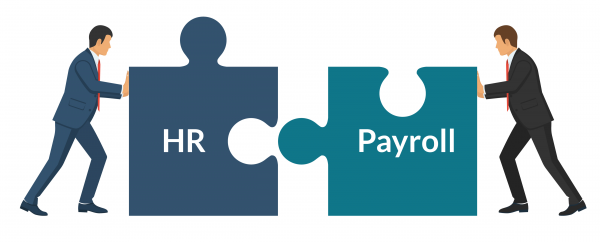CIPD Festival of Work 2023 - 3 of our key takeaways
By Tara Clarke in Appogee HR
With a strapline of “driving people with purpose to thrive,” the CIPD Festival of Work made a significant impact on attendees across the UK and beyond.
The annual event, held on the 7th and 8th of June, charmed attendees with an energetic atmosphere and great networking opportunities.
Along with helping small, medium, and large organisations to optimise workforce efficiency, the event also provided opportunities for attendees to have fun and learn new skills. Participants gained insights into the latest workplace research and trends in topics such as AI, employee engagement, and flexible working.
Creativity and innovation workshops allowed participants to learn and develop skills–sharing new ideas together to revolutionise the world of work.
The team at Appogee HR attended the event. Here’s a snapshot of the three key trends affecting the HR industry right now.
1. Employee wellbeing
Some 91% of employers in the UK believe there is a link between work and the health and well-being of its people. Plus, the population is growing, and people live much longer.
According to the ONS, it’s predicted that 24% of the UK population will be over 65 by 2039, compared to just 18% in 2016.
As you can see, it’s hardly surprising that employee wellness was a focus at the Festival of Work event and had its own Wellbeing Village. The dedicated area had many exhibitor stands filled with organisations offering practical information and demonstrations, like massages and yoga. The main stage provided expert presentations on topics such as developing an employee wellness strategy and increasing resilience skills.
The Wellbeing Village helped participants integrate well-being strategies in the workplace. People could understand and navigate the challenges relating to physical, emotional, mental, or financial health.
The growing consensus among participants was that employers must invest in their employees' mental, emotional, and physical well-being to enhance productivity, job satisfaction, and employee retention.
Here are five best practices regarding employee well-being and keeping people at the heart of your organisation.
- Consult with your people to find out what their needs are. Offer meaningful well-being initiatives that meet their needs. Ask, analyze, feedback, action.
- Offer benefits outside work too. Employees affected by different problems outside work tend to be distracted and unproductive at work. Shopping discounts, time off for volunteering, or working on a side project can reduce financial stress and offer a new focus.
- Role model healthy habits. Sending emails after work or not taking your annual leave quota can influence employees to set unhealthy work habits for themselves.
- Offer praise and recognition. Who doesn’t want to feel appreciated for great work? Show how you value their efforts with genuine feedback and shoutouts.
- Review wellness policies and strategies regularly. Get valuable input directly from the people the policies affect by involving employees. Why not set up a dedicated working group to review and update a flexible working or employee sickness?
Keep employee well-being at the top of your agenda. Develop new initiatives and review existing strategies that cater to the mind, body, and professional growth of all staff members.
Our key takeaway? Build a people-centric work environment by putting people first. Allow employees to make their own decisions to improve their well-being and contribute to well-being policies.
2. AI in the workplace
Organizations are increasingly taking advantage of HR AI technology. By pattern matching, generative AI can offer businesses an efficient way to streamline workflows, predict trends, and increase productivity.
Considering 35% of employers are already trialing AI in their organisations, and a further 40% are investing in their tech teams to integrate AI in the workplace, the topic is gaining momentum.
The event gave participants many opportunities to discuss AI and its impact on HR and advice about how humans and AI can work together to improve productivity.
That said, there was concern amongst participants that AI would remove the human interaction element of HR. Remote working, automation of HR tasks and the impact on HR jobs, and the development of employee soft skills offered compelling discussions.
AI technologies add significant value to businesses by:
- Eliminating recruitment and hiring bias. Automation of routine HR tasks like screening job applications, interview preparations, and scheduling meetings can eliminate discrimination and improve efficiency. AI technologies save HR pros valuable time and improve the fairness and accuracy of selection decisions.
- Personalising the employee experience. Pattern-matching technology understands individual preferences and needs. AI technology can tailor communications and recommendations, offering a more customized experience for employees and new candidates.
- Reducing administrative burden. AI can minimize the risk of human error and duplication by answering frequently asked questions in the hiring process or developing standard templates.
Our key takeaway? There’s no doubt rapid advancements in AI technology will change some HR functions over the next few years. However, AI shouldn’t be seen as a cost-cutting solution, nor should it replace human interactions. Embrace AI by giving people the skills to handle transformation in technology.
3. Diversity, Equality, Inclusion, and Belonging (DEI&B)
People continue to feel discriminated against in the workplace. Poor practices, unskilled leaders and managers, and ignorance create a toxic work environment.
Presentations from DEI&B experts offered practical advice about creating an inclusive work environment through learning and development and strategic planning.
Topics included HR law and legislation, HR reporting, creating safe spaces where people feel comfortable sharing their experiences, and developing a robust DEI&B strategy.
In fact, we’ve already created an in-depth article about how organisations can create a culture of belonging where everyone feels valued and respected.
Check it out here. Learn practical tips and tools for building diverse teams and fostering inclusivity in the workplace.
Our key takeaway? Employee well-being is not a stand-alone topic. Develop a solid well-being strategy with initiatives that are threaded throughout your organisation.
Our final thoughts
The huge number of HR pros that attended the Festival of Work offered ample opportunities for rich learning experiences.
As well as increasing knowledge and confidence in the main HR trends affecting today’s workforce, the event acted as a reminder to reflect and take care of oneself.
To learn more about Appogee HR can support your people operations, request a demo or try our software free for 14 days.
.webp?height=168&name=appogeehr%20(1).webp)




